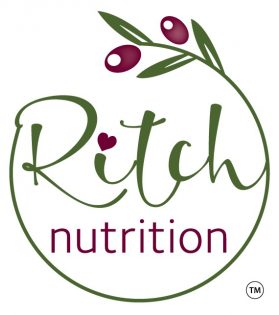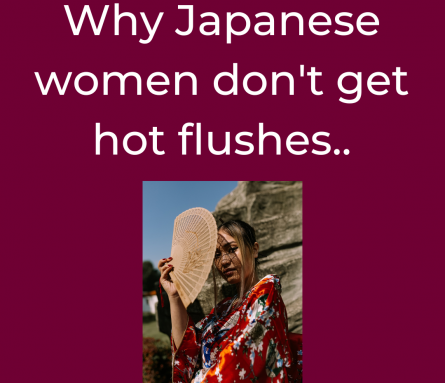I met a Japanese woman last week at a menopause talk I was giving. She told me that both her mother and grandmother did not understand what she was talking about when she asked them about their menopause symptoms and hot flushes.
I found this intriguing and did some research, only to discover that the Japanese in recent years had to invent a word for hot flushes, because so few women experienced them [only 25% com-pared to 75% in the UK].
One of the reasons is thought to be the social and cultural attitude towards menopause in Japan. In Japanese 'konenki' [menopause] means ‘renewal years’ and ‘energy’.
So much more positive than our more negative view of this life stage in the Western world.
You may well scoff at this explanation, however research has shown that a positive attitude can reduce menopause symptoms by as much as 30%.
Another explanation is that the Japanese diet and lifestyle is a lot healthier than ours. In particu-lar Japanese woman consume a lot of soya in the form of tofu, tempeh, miso, natto and edama-me beans.
Soya contains isoflavones, which are phytooestrogens [plant oestrogens], which are similar in structure to human oestrogen, although only about 1/1000th as potent.
They are quite magical in that they can both boost your natural oestrogen levels and lower lev-els if they're too high. Daily intakes of 45 mg of phytoestrogens have been shown to have bene-ficial stabilising effects on hormones.
A word of warning however, go for the highest quality, minimally processed, organic soya products and avoid anything GMO or with added ingredients.
Several of my clients have noticed the difference by including phytooestrogens in their diet. Al-so available in chickpeas, clover, lentils and beans.
If you'd like more info on what other foods contain phytooestrogens get in touch!

